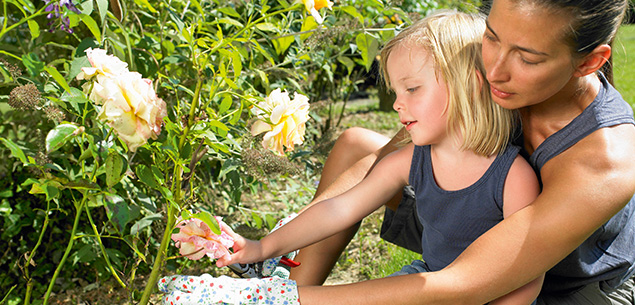Bees are key to our survival – without them, plants are not pollinated. It’s estimated that one third of the human food supply is dependent on insect pollination, yet we threaten them with common pesticides, so please ‘bee’ careful in the garden!
It’s tempting to reach for quick-fix insecticides when aphids cut a swathe through your roses, but you may also be harming insects which are beneficial to your garden, particularly bees.
Insecticides – specifically neonicotinoids – are a popular target in debates about bee heath. Imidacloprid, the most widespread neonicotinoid, is an active ingredient in some domestic garden products.
Check the label if you’re unsure. Studies have shown that while these insecticides don’t kill the bees, they produce fewer queens which means less new colonies in the next generation. It can also befuddle the bees and they may lose their way back to a hive.
Question marks remain over the actual impacts of insecticides but the National Beekeepers’ Association (nba.org.nz) would like gardeners to avoid using these products or other pesticides that harm bees. Other bee-toxic substances include chlorpyrifos and diazinon (organophosphates) and carbary (a carbamate). The United States Environmental Protection Agency lists organophosphates as highly toxic to bees.
Many pest problems can be prevented without using harmful garden sprays:
Keep weeds down by weeding frequently and mulching
Grow a mixture of plants to attract a balanced mix of insects
Destroy infested plants before the pests spread
Minimise damage
If you do resort to an insecticide, follow the instructions on the label. Spray only in the evening after the bees have returned to their hives and don’t spray on flowering plants or those that are visited by bees.
Pest predators
You can also attract pest predators, such as ladybirds, to your garden by planting flowers such as Michaelmas daisies, calendulas, Californian bluebells and sea hollies. Ladybirds love aphids and experts say there’s nothing more effective if you want to protect your roses!
Sue Chetwin – CEO CONSUMER NZ




